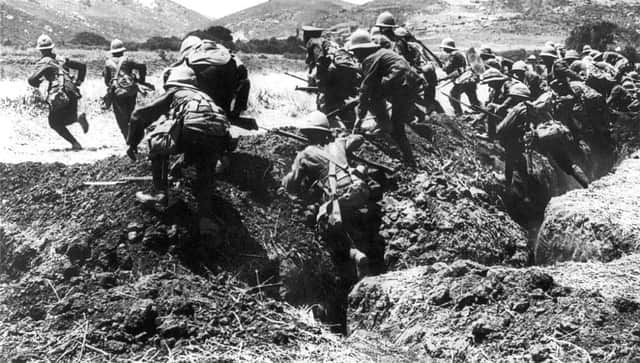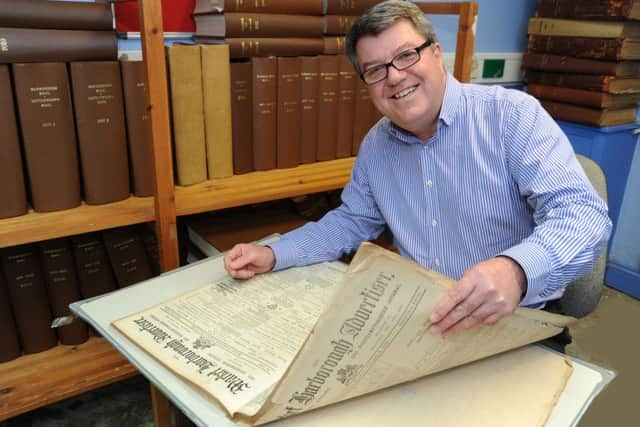John's WWI blog: Literary expertise paints a harrowing picture


A remarkably candid description of life in the hell of the Dardanelles is told by a Hallaton doctor in this week’s January 15, 1916, edition of the Market Harborough Advertiser.
The story is typical of First World War coverage in local newspapers.
Advertisement
Hide AdAdvertisement
Hide AdIt is more than a month out of date – the Allied soldiers withdrew from Gallipoli at the end of 1915 and the letter from Dr W H Stott was written in mid-December.


It drives a horse and coaches through the government’s draconian censorship laws and provides a raw and real insight for the readers sitting comfortably in their small town kitchens 3,000 miles away.
And, once again, there is evidence of the early 20th century’s powerful writing ability, albeit this time from a clearly educated and more mature man than the usual teenage Tommy.
Dr Stott begins his many thousands of words with a description of how his ship was stalked by a German submarine all the way from Malta to the Turkish peninsula before describing his arrival in Suvla Bay with characteristic British understatement.
Advertisement
Hide AdAdvertisement
Hide Ad“Suvla Bay is one of the finest seaside places I have seen in my many trips both east and west but at present it cannot be recommended as a health resort,” he says.


“Besides the bursting shrapnel, the high explosive, and other shells, and the ping of the bullet, there are the minor horrors of warfare, in the shape of dysentery, diarrhoea, flies, lice, centipedes and even snakes.”
And again the British humour comes to the fore. “In a pool near to one of our advanced aid posts there are crowds of turtles, which we sometimes catch, but no one thinks of soup for we know the pool has lots of fat old Turks in it.”
Then the Advertiser repeats the doctor’s rather scathing assessment of the army’s generals. “It is not much use talking about what might have been and how near we were to success which would have probably altered the whole aspect of the war.”
Advertisement
Hide AdAdvertisement
Hide AdThen comes a simple statement which is remarkable considering the Defence of the Realm Act specifically prohibits publication of anything which shows the war effort in a bad light.
“There have been blunders – there always will be.”
And Dr Stott continues: “The Turks are ensconced in almost impregnable positions on high hills. Dysentery and diarrhoea has caused appalling losses to our fighting force, the heat and flies have been almost unbearable, and finally the storm and blizzard of a few days ago was probably the greatest trial which any British Army ever had to face.
“A rain storm which filled the low-lying trenches with six feet of water, drowning many, soaking everybody, followed by keen frost and snow for four days. No-one on the Peninsular will forget the time from November 28th-December 3rd.”
Dr Stott’s literary expertise in drawing such vivid pictures is eclipsed by his final words, which must have brought tears to the eyes of those readers in quiet Market Harborough.
Advertisement
Hide AdAdvertisement
Hide Ad“As we lower our fallen comrades into their cold and lonely grave, we have learnt to understand that he has only gone round the bend of the road where love and peace and harmony reigns forever.
“No matter what blots there may be upon his escutcheon and how scarlet may be his sins, he is fighting and he is dying to protect the hearth and homes of those he loves, and for that country which is giving the best in manhood and wealth so that the world may be free.”